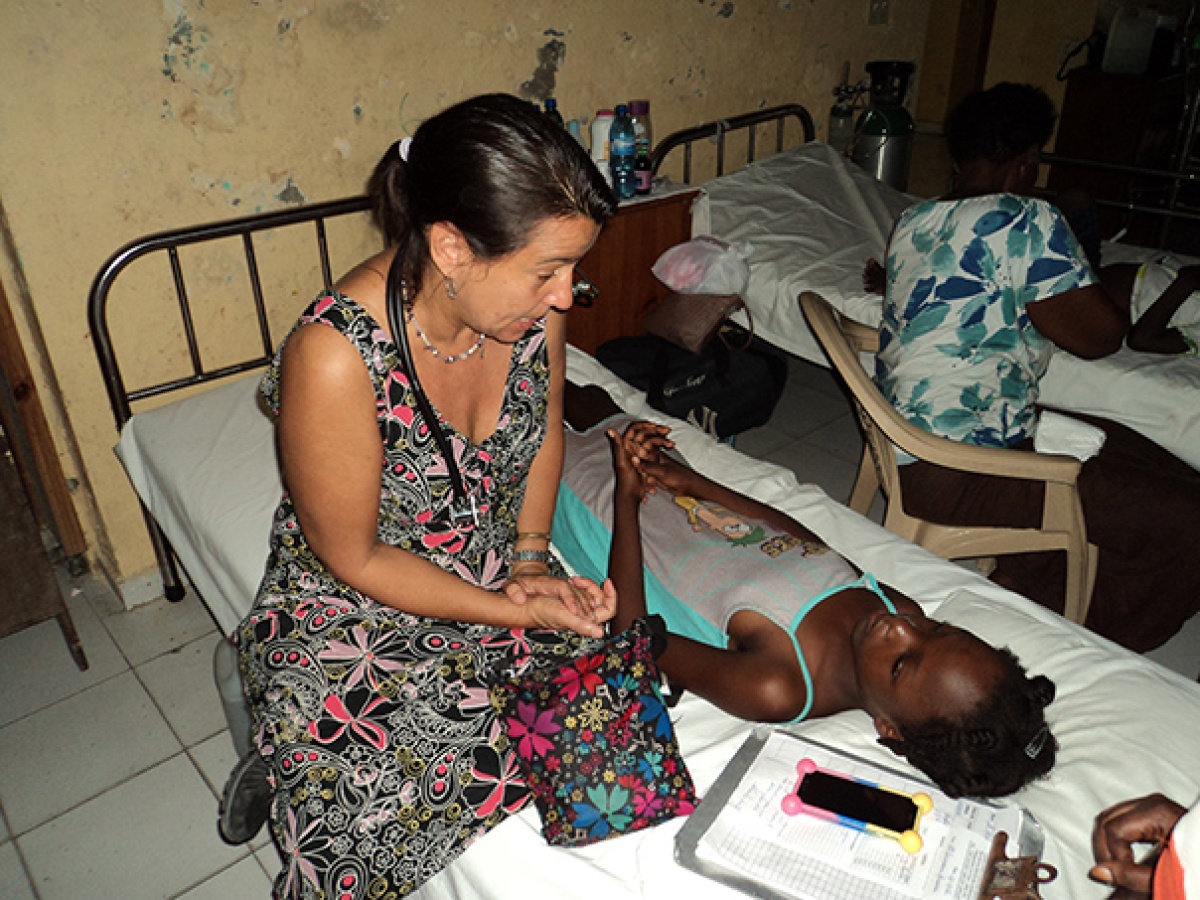'Loss Beyond Measure' in Southern Haiti
Posted on Oct 19, 2016

Dr. Joia Mukherjee has seen devastation in Haiti. She was there just days after the January 2010 earthquake that reduced Port-au-Prince neighborhoods to rubble, killed 300,000 people, injured 300,000 more, and displaced 1.5 million. Still, she says, each brick removed and surgery performed felt like a step forward.
But now, seeing the destruction left by Hurricane Matthew, she struggles to find words to describe the scene along Haiti’s southern claw, the region hit hardest by the Category 4 storm.
“I can honestly say this is one of the worst things I have ever seen,” says Mukherjee, Partners In Health’s chief medical officer.
Mukherjee visited the southern city of Les Cayes and neighboring communities between there and Jérémie with a small team from Zanmi Lasante (ZL), as PIH is known in Haiti. They went to speak with local officials, determine how best to help, and tend to patients at the Hôpital Immaculée Conception in Les Cayes, the sole standing public hospital for 1.3 million people. Since PIH is one of the oldest, strongest, and most trusted organizations in Haiti, the team was asked to visit the south by the Ministry of Public Health and Population to help them think through their response as they grapple to get a full sense of the storm’s impact.
What Mukherjee sees, she says, breaks her heart. Thousands of acres of peasant farmland destroyed, swept away by 145 mile-per-hour winds or damaged by gallons of saltwater that fell over a 24-hour period. Statuesque banana and mango trees snapped like matchsticks. Livestock disappeared. Many houses simply gone. Others stripped of their roofs. Clothes and household goods strewn about as if they’d been caught in a tornado.
And this is just the material damage. Mukherjee, her voice cracking, says she’s “waiting with a sense of dread that things actually will get much worse here.” Hundreds of people are using the same small, ill-equipped buildings, such as public schools, as emergency shelters. These places have inadequate water and sanitation and could quickly turn into fertile ground for deadly diarrheal diseases such as cholera. She thinks of the destroyed crops and empty storehouses and anticipates starvation. Water pools everywhere, creating potential breeding grounds for mosquitoes carrying diseases like malaria, Dengue, and Zika. And then there are the infections, such as tetanus, that come from untreated wounds sustained from flying debris during the hurricane.
“It’s really beyond measure,” she says.
There is so much to do, it’s hard to know where to begin. While field-based emergency care is needed, so too is a functioning hospital to refer patients who need specialized care and treating illnesses that will increase in the next days, weeks, and months. Given PIH’s expertise in infectious diseases and building health systems, those areas seemed a natural place to start.
People have no idea how bad this is. They lost everything.
So PIH leaders in Haiti, including Co-executive Directors Fernet Leandre and Loune Viaud, decided to focus on two areas over the next six months: reinforcing PIH’s 10 cholera treatment centers and supporting Hôpital Immaculée Conception in Les Cayes.
With some estimates claiming the number of displaced at 1 million people and no temporary shelter in the south, Mukherjee thinks hurricane survivors will start resettling in the north and west, toward where PIH works in the Central Plateau and Artibonite. They may bring cholera with them, adding to the burden the disease has already placed there, as flooding and fetid water are causing a spike in cases following Hurricane Matthew.
Mukherjee says the 150-bed Hôpital Immaculée Conception will receive the typical PIH “package” of services. Patients will be fed. (They currently aren’t, unless family members bring them meals.) Care and medications will be free for those who need it most. Social workers and mental health staff will be on hand to provide support for patients and health care providers. And the roof will be repaired, electricity restored, and medical supplies stocked to meet increased demand.
In the midst of this, PIH is tending to the needs of its own staff, many of whom have deep roots in the south. Last weekend, the organization helped roughly 150 staff members reach the regions of Sud, Grand Anse, and Nippes so they could check on family, friends, and homes left behind. PIH will be providing modest support to these staff as they help loved ones rebuild or relocate.
Mukherjee talked to many of them afterward and says they shared their stories through tears.
“People have no idea how bad this is,” Mukherjee says. “They lost everything.”

